Marchés
Lors de la conception d’une intervention humanitaire et de la prise de décisions quant à l’utilisation des transferts monétaires, l’analyse générale des options de réponse doit inclure une analyse de marché. Il est prouvé qu’offrir un soutien ciblant le fonctionnement des marchés accélère la reprise et accroît la résilience dans les zones affectées par une catastrophe.
De nombreuses organisations ont investi dans la mise au point d’outils visant à faciliter l’analyse de marché et réfléchissent à la mise en place de programmes basés sur les marchés plus holistiques. Elles envisagent des interventions tirant profit du marché (basées notamment sur des transferts monétaires aux populations affectées), ainsi que des interventions soutenant directement les marchés (comme l’octroi de subventions conditionnelles aux vendeurs/euses pour la remise en condition du marché).
Initiatives associées
Contenu associé

1.2 Introduction à l’analyse de marché
Cours
Ce cours de 30 minutes offre une introduction à l’analyse de marché pour les contextes d’urgence. Il contient des contributions d'experts dans ce domaine. Ce cours a été développé en collaboration avec l'International Rescue Committee et le CALP Network et grâce au financement d’USAID/OFDA et de l’Agence Suisse pour le Développement et la Coopération. Il est destiné aux...

2.4 Un guide pratique pour l’analyse de marché
Cours
Ce cours en ligne de 3.5 heures vise à fournir aux équipes qui conduiront des analyses de marchés en contextes humanitaires une compréhension approfondie de la théorie et des étapes à suivre afin de leur permettre de comprendre le pourquoi et le comment du processus à suivre. Les participants seront guides à travers un scenario d'analyse de marchés d'urgence. Ce cours s'appuie sur...
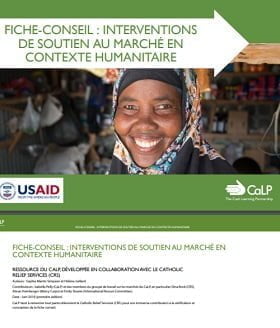
Fiche-Conseil : Interventions de soutien au marché en contexte humanitaire
Guides et outils
La fiche conseil définit le programme de soutien au marché en contexte humanitaire et le décrit dans la pratique. Elle permet aux praticiens humanitaires d’envisager systématiquement des interventions de soutien au marché, parallèlement à d’autres activités du programme. Le champ d’application comprend des interventions de soutien au marché axées sur l’offre/la disponibilité...
Thematic lead
Latest
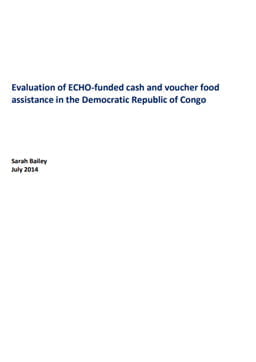
Evaluation of ECHO-Funded Cash and Voucher Food Assistance in the Democratic Republic of Congo
Report
People in eastern Democratic Republic of Congo (DRC) have long faced protracted conflict and instability resulting in the displacement of populations. In order to provide households affected by new displacements with timely access to food, ECHO funded the Norwegian Refugee Council (NRC), the Association...
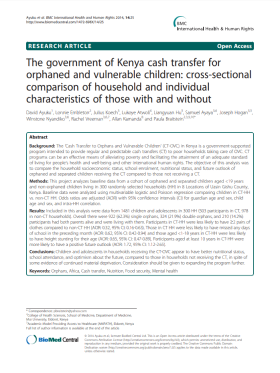
The Government of Kenya Cash Transfer for Orphaned and Vulnerable Children: Cross-sectional Comparison of Household and Individual Characteristics of Those With and Without
Report
The ‘Cash Transfer to Orphans and Vulnerable Children’ (CT-OVC) in Kenya is a government-supported program intended to provide regular and predictable cash transfers (CT) to poor households taking care of OVC. CT programs can be an effective means of alleviating poverty and facilitating the attainment...

Les outils du CALP Network: vue d’ensemble
Guides et outils
Ce document présente les principaux outils développés par le CALP Network afin de soutenir la communauté de pratique dans l’apprentissage, le partage d’informations et les discussions sur des sujets relatifs aux transferts monétaires.

Evaluation des impacts socio-anthropologiques liés aux interventions d’urgence à modalité « transferts d’argents » dans le Kanem – Rapport d’orientations stratégiques
Rapport
Ce rapport donne des orientations stratégiques et programmatiques ainsi que des recommandations sur les évolutions des programmes de transferts monétaires non conditionnées dans la région du Kanem. Il se base sur une analyse des ressources locales, des liens externes à la région, des positions des...
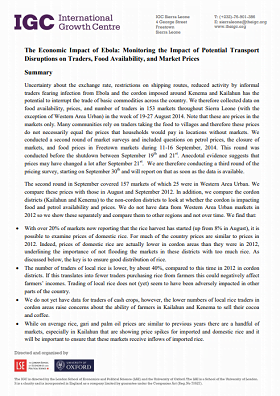
The Economic Impact of Ebola: Monitoring the Impact of Potential Transport Disruptions on Traders, Food Availability, and Market Prices
Report
Uncertainty about the exchange rate, restrictions on shipping routes, reduced activity by informal traders fearing infection from Ebola and the cordon imposed around Kenema and Kailahun has the potential to interrupt the trade of basic commodities across the country. We therefore collected data on food...
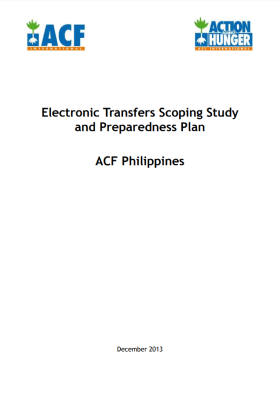
Electronic Transfers Scoping Study and Preparedness Plan
Policy paper
This piece of work was arranged by Action Against Hunger (ACF), with the intention of understanding the electronic payment services available in a minimum of two country missions and to support ACF in preparing for future humanitarian response in country and globally, with a specific focus on...
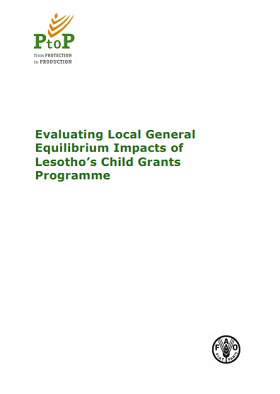
Evaluating Local General Equilibrium Impacts of Lesotho’s Child Grants Programme
Report
This report presents findings from a local economy-wide impact evaluation (LEWIE) of Lesotho’s Child Grants Programme. Simulations indicate that total income impacts significantly exceed the amounts transferred under the programme: each loti transferred stimulates local nominal income gains of up to...
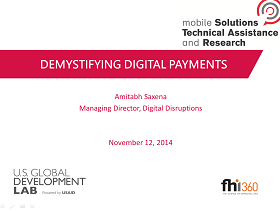
Demystifying Payments – mStar
Report
In its simplest form, a payment is any exchange of value between two parties, where usually Party A offers a form of currency in exchange for a good or service provided by Party B. The advent of nation-states issuing fiat currency, such as paper bills and bronze coins, which unlike gold or silver...
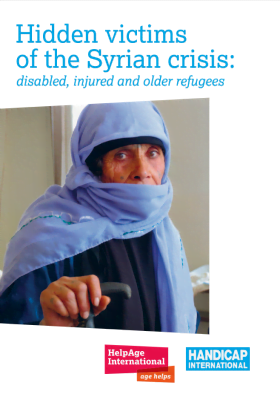
Hidden Victims of the Syrian Crisis: Disabled, injured and older refugees
Report
The Syrian crisis has generated the largest refugee movement since the Rwandan genocide and is described as the defining refugee crisis of our era. According to the United Nations High Commissioner for Refugees, Antonio Guterres, Syrian refugees are about to replace Afghans as the world’s largest...

Support to the local tool market post-Typhoon Haiyan
Report
Super Typhoon Haiyan struck Leyte and Eastern Samar in the Philippines in November 2013. CRS responded by initiating a program in 2014 to support the livelihoods recovery of 5,250 agriculture-based households. The Livelihood Early Recovery Support to Agricultural Households Affected by Typhoon Yolanda...
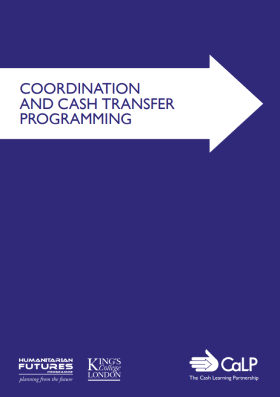
Coordination and Cash Transfer Programming
Policy paper
This thematic report has been undertaken as part of a 2013 research study entitled, Is Cash Transfer Programming ‘Fit for the Future’? The research was commissioned by the the CALP Network and undertaken by the Humanitarian Futures Programme (HFP), King’s College London. The overall...
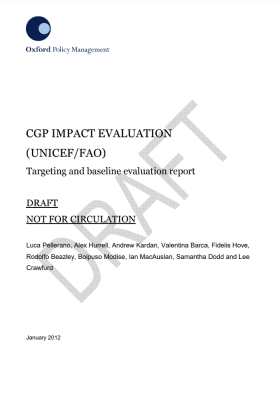
CGP Impact Evaluation (UNICEF/FAO): Targeting and baseline evaluation report
Report
The Child Grants Programme (CGP) is an unconditional cash transfer targeted to poor and vulnerable households in Lesotho. The primary objective of the CGP is to improve the living standards of Orphans and Vulnerable Children (OVC) so as to reduce malnutrition, improve health status, and increase school...
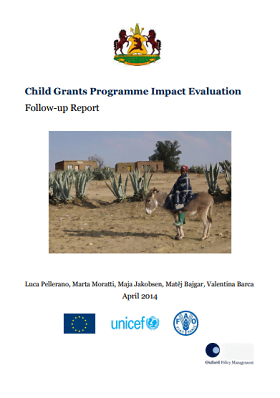
Child Grants Programme Impact Evaluation Follow-up Report
Report
The Lesotho Child Grants Programme (CGP) is an unconditional social cash transfer targeted to poor and vulnerable households. It provides every quarter a regular transfer of between M360 and M7501 to poor households with children that are selected through a combination of Proxy Means Testing (PMT) and...

A Double-edged Sword: Livelihoods in emergencies guidance and tools for improved programming
Guidelines and Tools
This document aims to help economic development practitioners who design economic strengthening projects with the particular aim of improving child wellbeing and for others whose aim is poverty alleviation more broadly. The guidance presented is based on the understanding that: 1. Household economic...
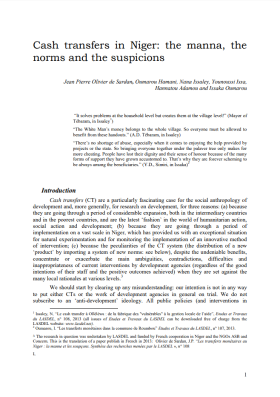
Cash transfers in Niger: The manna, the norms and the suspicions
Report
Cash transfers (CT) are a particularly fascinating case for the social anthropology of development and, more generally, for research on development, for three reasons: (a) because they are going through a period of considerable expansion, both in the intermediary countries and in the poorest countries,...
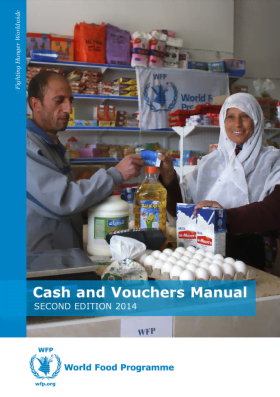
Cash and Vouchers Manual – Second edition
Guidelines and Tools
This second edition of the Cash and Vouchers Manual captures the latest corporately endorsed business processes and procedures, providing the most up-to-date tools (i.e. analytical, assessment, monitoring) that have been developed through close intra-departmental collaboration between Headquarters...

Directives pour la mise en oeuvre de transferts électroniques en situation d’urgence
Rapport
Les transferts électroniques sont une forme de transfert de valeurs qui s’appuient sur des systèmes de paiement numérique. Les très nombreux avantages que peuvent conférer ces transferts aux bénéficiaires aussi bien qu’aux organisations d’aide humanitaire ont été abondamment documentés....

Projet du Cadre Commun sur les Filets Sociaux Saisonniers au Nord du Mali, régions de Tombouctou et Gao – Document de capitalisation
Publication
Ce document de capitalisation s’adresse aux acteurs humanitaires et de développement, aussi bien gouvernementaux que non gouvernementaux oeuvrant au Mali à réduire la vulnérabilité et la pauvreté des populations, mais aussi pour ceux qui s’intéresse et cherche à se rapprocher des techniques de...
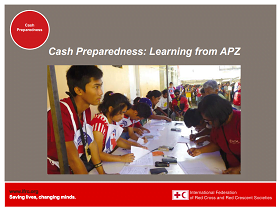
Cash Preparedness: Learning from APZ
Report
Cash Preparedness: Learning from APZ
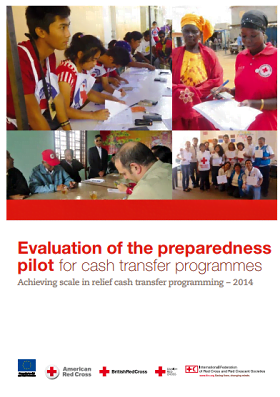
Evaluation of the Preparedness Pilot for Cash Transfer Programmes – Achieving scale in relief cash transfer programming – 2014
Report
It is recognized that cash transfer programming can be effective in supporting populations affected by disasters in a way that maintains dignity and choice for beneficiaries while stimulating local livelihoods, economies and markets. However, the majority of cash transfer programming has been undertaken...
